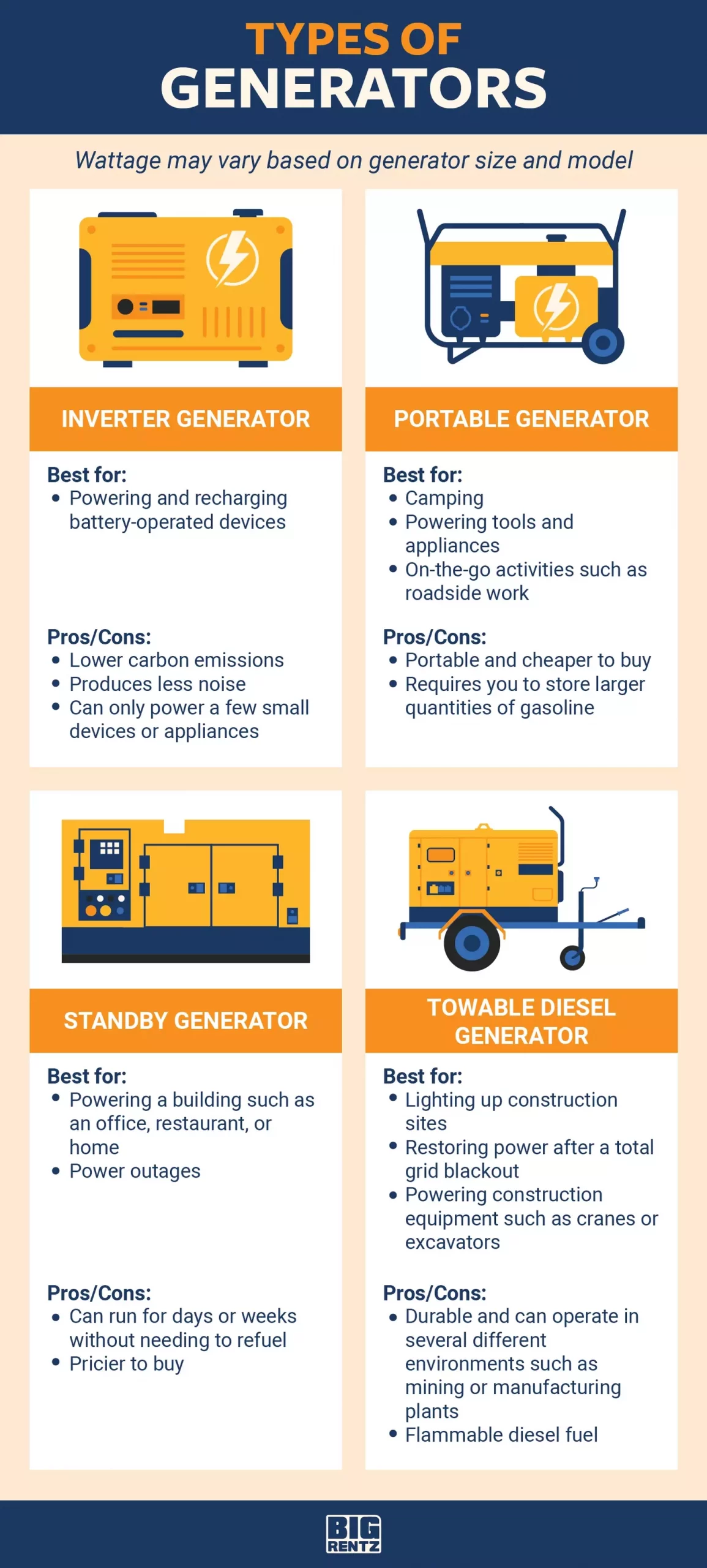Generators are useful. They give power when there’s none. But choosing the right size can be hard. This guide will help you find the right generator. Let’s start!
What is a Generator?
A generator makes electricity. It uses fuel to do this. Fuel can be gas, diesel, or even solar. When the power goes out, a generator is handy. It keeps lights on and fridges cold. But, not all generators are the same.

Why is Size Important?
Size matters for generators. A small generator can’t power a big house. A big generator can be too much for a small home. You need the right size for your needs. This saves money and works best.
Understanding Wattage
Wattage is key. It tells how much power a generator makes. More watts mean more power. To know your wattage needs, think about your appliances.
Appliances And Power
Different appliances use different watts. A fridge uses more watts than a lamp. Here is a simple list:
- Lamp: 60 watts
- Fridge: 600 watts
- TV: 200 watts
- Microwave: 1000 watts
- Computer: 400 watts
Add up the watts of things you want to power. This gives your total wattage need.
Types of Generators
Generators come in many types. Each has its own size and power.
Portable Generators
Portable generators are small. They move easily. They are great for small tasks. Like camping or powering a few appliances. They range from 1,000 to 10,000 watts.
Standby Generators
Standby generators are big. They stay in one place. They power homes when the main power is out. They range from 5,000 to 50,000 watts.
Inverter Generators
Inverter generators are quiet. They are good for sensitive electronics. They are portable and efficient. They range from 1,000 to 4,000 watts.

How to Choose the Right Size?
Choosing the right size needs some steps. Follow these easy steps.
Step 1: List Your Appliances
Write down the appliances you want to power. Don’t forget the lights and any important device.
Step 2: Find Total Wattage
Add the watts of each appliance. This gives you the total watts needed.
Step 3: Choose A Generator
Pick a generator that gives more watts than your total. This ensures your generator works well.
Example Calculation
Let’s say you have a fridge, TV, and lamp.
| Appliance | Wattage |
|---|---|
| Fridge | 600 watts |
| TV | 200 watts |
| Lamp | 60 watts |
Total wattage is 860 watts. Choose a generator that gives at least 1000 watts. This covers your needs and has extra for safety.
Other Things to Consider
There are other factors to think about.
Fuel Type
Generators use different fuels. Gas is common and easy to find. Diesel lasts longer but costs more. Solar is green but needs sunlight.
Noise Level
Some generators are loud. Inverter generators are quiet. Think about where you will use it. Noise may bother neighbors.
Budget
Generators have different prices. Portable ones cost less. Standby ones cost more. Choose one that fits your budget.
Safety Tips
Generators need safe use. Follow these tips.
- Keep it outside. Never use indoors.
- Check fuel levels. Don’t let it run out.
- Read instructions. Follow them for safe use.
- Don’t overload. Stick to your wattage limit.
Frequently Asked Questions
How Do I Determine Generator Size For My Home?
Start by listing essential appliances. Check their power needs. Add them up. This gives you a rough idea.
What Size Generator Is Needed For A 2000 Sq Ft House?
A 7,500-watt generator usually works for a 2000 sq ft home. Covers most essential needs.
How Many Watts Do I Need For A Refrigerator?
A typical refrigerator needs around 600-800 watts. Always check your specific model’s requirements.
Can A Small Generator Power My Whole House?
Small generators might not support everything. Essential items only. Calculate your total wattage first.
Conclusion
Choosing the right generator size is important. Think about your power needs. Understand wattage and generator types. Follow the steps and tips. You will find the right generator for your home.
Generators keep life going when power is gone. Make sure you choose wisely. It will help you when you need it most.
